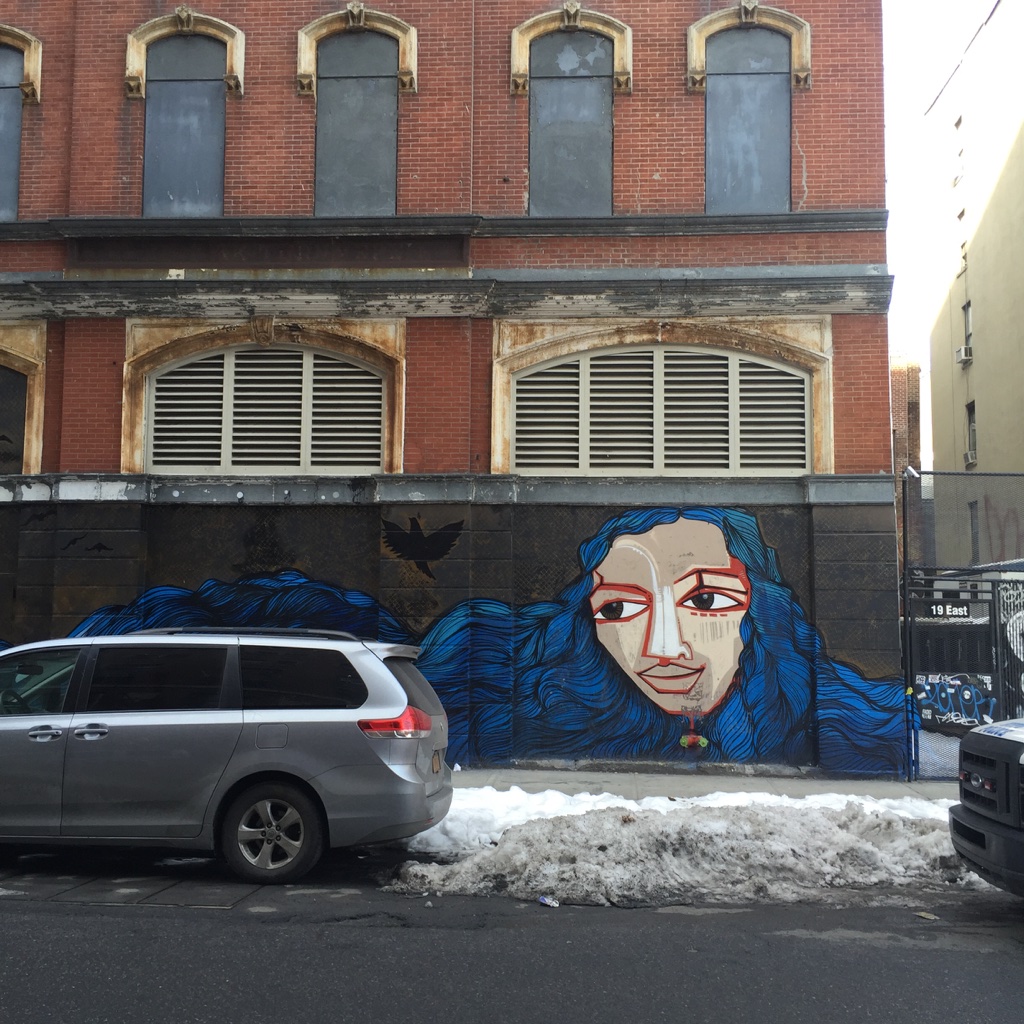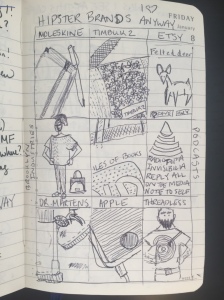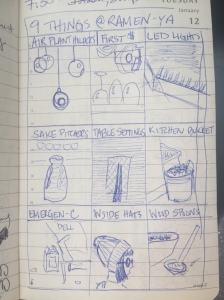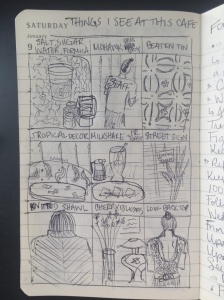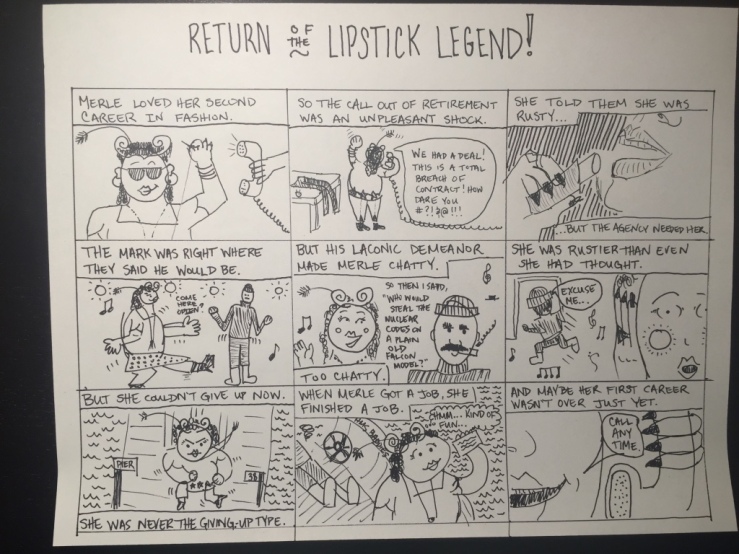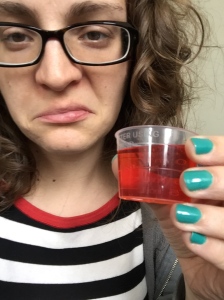
This photo is a year old, which means that last year right now I was also sick with Whatever Is Going Around. The timing is awesome (well, extra awesome) because despite earlier reports, the coldest day of the season is actually going to be this weekend, with polar vortex-esque temperatures and all that attendant fun. My decade-plus in Chicago has prepared me well for this terrible time, but it’s sort of a no-brainer solution: hiding in my apartment, chugging down tea and cold medicine, paying huge tips to delivery guys if for some reason I run out of food.
Well, you say to yourself, this could be all right. You’ve run out of Parks & Rec on Netflix and you could really use this time to focus on self-improvement fun. This is always true! I keep having books I could read for pleasure, food-and-travel shows I could bask in and Hamilton songs to finally learn. I have a lot of practice in all those things. I’m an expert in many kinds of loafing.
Except here’s the thing. Last week I finished up Summer Pierre’s online comics-making course. Short version: It was wonderful. Making comics with no pressure to be perfect, surprise surprise, makes it so much easier to get in there and actually make comics. Can’t recommend the course enough, it starts again in April, you should definitely do it if you’re curious but think you can’t. It has nothing to do with drawing ability, just a desire to do it.
That’s actually really good for me to relearn. See — surprise, surprise — I’m a lifelong perfectionist. I keep forgetting that everyone is a beginner at some point, and that you get good at things by experimenting and practicing, not by doing it really well out of thin air or panicking if it’s something you have to work at. Somehow this is not obvious to me, but luckily my therapist is very patient about it. Summer’s comics course is wonderful because she insists on using the most low-stakes materials right out of the gate — some index cards, two pens and a cheap composition notebook for drawing in (so you don’t get caught up in the fear of ruining the pristine perfection of a brand-new fancy blank sketchbook — how did you know, Summer? it me!). That’s it. You just throw yourself into it and don’t give yourself the time to get caught up in your head.
My favorite for practice is the list comic (see also: Nine TV Shows I Love to Rewatch, Nine Things I Miss About Chicago). If I accidentally leave a page blank in my daily planner, it’s just the right size for a simple grid of nine and either organizing some organizables or observing what’s around you. I used to draw all the time as a kid, and I probably fell out of it because I didn’t think I could catch up to the people who were really good, even though every other class I’ve ever taken post-college — singing, social dancing, improv — has been about embracing your beginner status and rejecting the idea that you’re “bad” at anything you don’t know how to do.
One of the amazing things about Tumblr, probably my favorite time-waster, is getting to see all kinds of incredible art all the time. I really love it when these artists share progress updates — this is how far I’ve come in a year. If you just discovered me, I’ve been growing a lot, and you can too!
https://www.instagram.com/p/8Vg7XhKdGX/
I want to make comics a habit. It’s an art form that’s excited me my whole life, and actually sitting down to try it, to experiment with visual language and challenge myself to use fewer words, is exhilarating, actually. Getting stale is the worst. Trying new things is great. So, without revealing too much about the process (take the class!), here’s the rough draft of the final, real, nine-panel comics story that I made, with thanks to Virgie Tovar and Agent Carter:
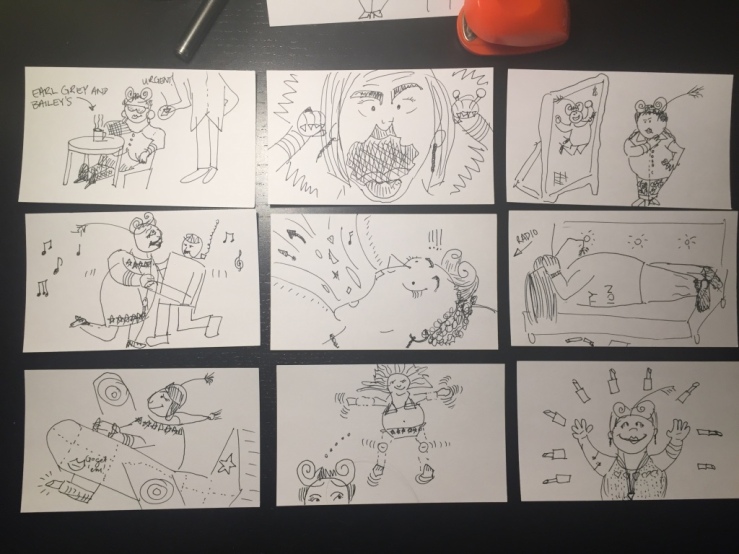
And here’s what happened when I sat down, smoothed it all out and… actually made a comic, ohmygod:
I know I’ve literally blogged before about how buying art supplies will not make me an artist, but I’m not going to lie: Yesterday I went to Dick Blick and bought some slightly heavier drawing paper, because printer paper was making me nervous about erasing too much and I have all kinds of things I want to keep making and trying. I resisted all the gorgeous pens and colored pencils, but the notepad, I think that’s a good present to myself.
(Sidebar, for real: Summer’s class is a great present to yourself. She’s warm, welcoming and so, so good at what she does. I’ve been admiring her from afar ever since her book The Artist in the Office saved me at my first desk job, and I’m so glad to have gotten to learn from her and my amazing fellow classmates. She makes comics so accessible! Look at me — Miss Perfectionist central, and I’m all ready to keep scribbling and developing my style and skills. Like a beginner. Which is a pretty good place to be.)
